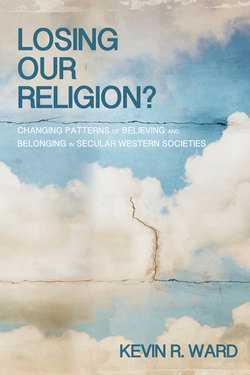Описание книги
Church-going in most Western societies has declined significantly in the wake of the social and cultural changes that began in the 1960s. Does this mean that people in these societies are losing any religious dimension in their lives, or is it being expressed in other forms and places? This study begins by looking at comparative data on how church-going patterns have changed in five countries–Britain, the United States, Canada, Australia, and New Zealand–examining reasons for the decline, how churches have responded to these changes, and why some churches have shown greater resilience. It then explores some of the particular challenges these changes pose for the future of churches in these societies and some of the responses that have been made, drawing on both sociological and theological insights. The conclusion is that, despite the loss of belonging, believing persists and religion continues to play a significant role in these societies, mediated in a variety of diffuse cultural forms. Cases illustrating these changes are largely drawn from New Zealand, which as the country most recently settled by Europeans has always been «secular» and thus provides helpful insights.
